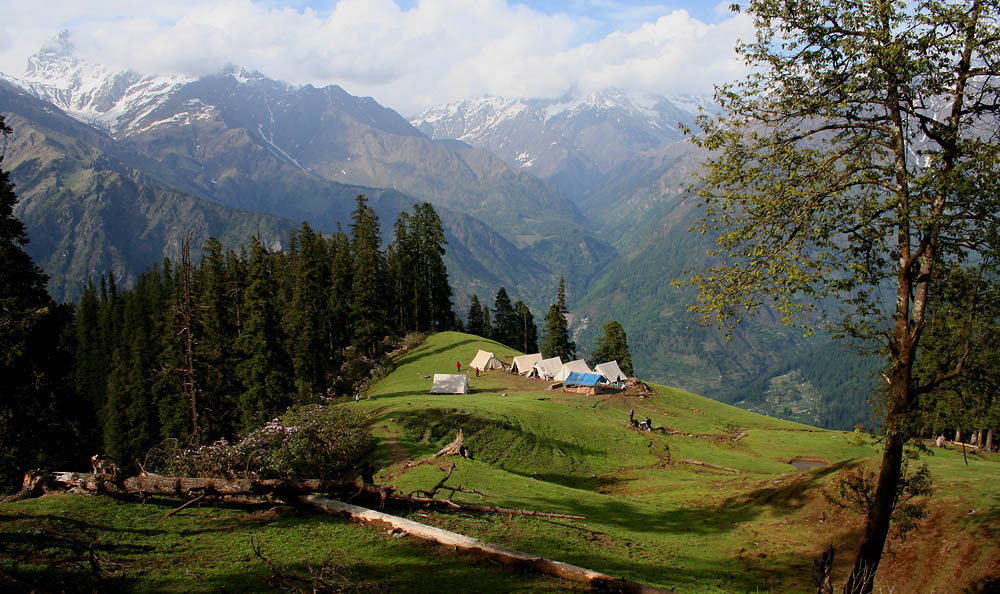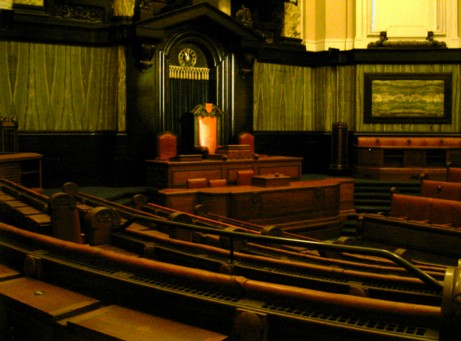|
Sylvia Law (planner)
Sylvia Law OBE (29 March 1931 – 1 April 2004) was a British town planner who was the first woman to be elected as President of the Royal Town Planning Institute. Life and career She was born in Southport, Lancashire, the daughter of a cotton waste merchant. She grew up in Rochdale, and attended Bury Grammar School for Girls and Lowther College, Bodelwyddan Castle, North Wales, before studying geography at Girton College, Cambridge. She began work as a teacher at Benenden School before leaving to join Unilever as a researcher. However, she became increasingly interested in urban planning and architecture, particularly the work of Frank Lloyd Wright, and decided to become a planner. [...More Info...] [...Related Items...] OR: [Wikipedia] [Google] [Baidu] |
Town Planner
An urban planner (also known as town planner) is a professional who practices in the field of town planning, urban planning or city planning. An urban planner may focus on a specific area of practice and have a title such as city planner, town planner, regional planner, long-range planner, transportation planner, infrastructure planner, environmental planner, parks planner, physical planner, health planner, planning analyst, urban designer, community development director, economic development specialist or other similar combinations. Royal Town Planning Institute is the oldest professional body of town and urban planners founded in 1914 and the University of Liverpool established the first dedicated planning school in the world in 1909. Responsibilities The responsibilities of an urban planner vary between jurisdictions, and sometimes within jurisdictions. The following is therefore a general description of the responsibilities of an urban planner, of which an urban planner ... [...More Info...] [...Related Items...] OR: [Wikipedia] [Google] [Baidu] |
Regent Street Polytechnic
The University of Westminster is a public university, public university based in London, United Kingdom. Founded in 1838 as the Royal Polytechnic Institution, it was the first Polytechnic (United Kingdom), polytechnic to open in London. The Polytechnic formally received a Royal charter in August 1839, and became the University of Westminster in post-1992 universities, 1992. Westminster has its main campus in Regent Street in central London, with additional campuses in Fitzrovia, Marylebone and Harrow, London, Harrow. It also operates the Westminster International University in Tashkent in Uzbekistan. The university is organised into three colleges and 12 schools, within which there are around 65 departments and centres, including the Communication and Media Research Institute (CAMRI) and the Centre for the Study of Democracy. It also has its Policy Studies Institute, Westminster Business School, Business School and Westminster Law School, Law School. Westminster had an income of £ ... [...More Info...] [...Related Items...] OR: [Wikipedia] [Google] [Baidu] |
People From Southport
A person ( : people) is a being that has certain capacities or attributes such as reason, morality, consciousness or self-consciousness, and being a part of a culturally established form of social relations such as kinship, ownership of property, or legal responsibility. The defining features of personhood and, consequently, what makes a person count as a person, differ widely among cultures and contexts. In addition to the question of personhood, of what makes a being count as a person to begin with, there are further questions about personal identity and self: both about what makes any particular person that particular person instead of another, and about what makes a person at one time the same person as they were or will be at another time despite any intervening changes. The plural form "people" is often used to refer to an entire nation or ethnic group (as in "a people"), and this was the original meaning of the word; it subsequently acquired its use as a plural form of per ... [...More Info...] [...Related Items...] OR: [Wikipedia] [Google] [Baidu] |
Officers Of The Order Of The British Empire
An officer is a person who has a position of authority in a hierarchical organization. The term derives from Old French ''oficier'' "officer, official" (early 14c., Modern French ''officier''), from Medieval Latin ''officiarius'' "an officer," from Latin ''officium'' "a service, a duty" the late Latin from ''officiarius'', meaning "official." Examples Ceremonial and other contexts *Officer, and/or Grand Officer, are both a grade, class, or rank of within certain chivalric orders and orders of merit, e.g. Legion of Honour (France), Order of the Holy Sepulchre (Holy See), Order of the British Empire ( UK), Order of Leopold (Belgium) *Great Officer of State *Merchant marine officer or licensed mariner *Officer of arms * Officer in The Salvation Army, and other state decorations Corporations * Bank officer *Corporate officer, a corporate title **Chief executive officer (CEO) **Chief financial officer (CFO) **Chief operating officer (COO) *Executive officer Education *Chief academic ... [...More Info...] [...Related Items...] OR: [Wikipedia] [Google] [Baidu] |
Women Urban Planners
A woman is an adult female human. Prior to adulthood, a female human is referred to as a girl (a female child or adolescent). The plural ''women'' is sometimes used in certain phrases such as "women's rights" to denote female humans regardless of age. Typically, women inherit a pair of X chromosomes, one from each parent, and are capable of pregnancy and giving birth from puberty until menopause. More generally, sex differentiation of the female fetus is governed by the lack of a present, or functioning, SRY-gene on either one of the respective sex chromosomes. Female anatomy is distinguished from male anatomy by the female reproductive system, which includes the ovaries, fallopian tubes, uterus, vagina, and vulva. A fully developed woman generally has a wider pelvis, broader hips, and larger breasts than an adult man. Women have significantly less facial and other body hair, have a higher body fat composition, and are on average shorter and less muscular than men. Thro ... [...More Info...] [...Related Items...] OR: [Wikipedia] [Google] [Baidu] |
British Urban Planners
British may refer to: Peoples, culture, and language * British people, nationals or natives of the United Kingdom, British Overseas Territories, and Crown Dependencies. ** Britishness, the British identity and common culture * British English, the English language as spoken and written in the United Kingdom or, more broadly, throughout the British Isles * Celtic Britons, an ancient ethno-linguistic group * Brittonic languages, a branch of the Insular Celtic language family (formerly called British) ** Common Brittonic, an ancient language Other uses *''Brit(ish)'', a 2018 memoir by Afua Hirsch *People or things associated with: ** Great Britain, an island ** United Kingdom, a sovereign state ** Kingdom of Great Britain (1707–1800) ** United Kingdom of Great Britain and Ireland (1801–1922) See also * Terminology of the British Isles * Alternative names for the British * English (other) * Britannic (other) * British Isles * Brit (other) * Briton (d ... [...More Info...] [...Related Items...] OR: [Wikipedia] [Google] [Baidu] |
2004 Deaths
This is a list of deaths of notable people, organised by year. New deaths articles are added to their respective month (e.g., Deaths in ) and then linked here. 2022 2021 2020 2019 2018 2017 2016 2015 2014 2013 2012 2011 2010 2009 2008 2007 2006 2005 2004 2003 2002 2001 2000 1999 1998 1997 1996 1995 1994 1993 1992 1991 1990 1989 1988 1987 See also * Lists of deaths by day The following pages, corresponding to the Gregorian calendar, list the historical events, births, deaths, and holidays and observances of the specified day of the year: Footnotes See also * Leap year * List of calendars * List of non-standard ... * Deaths by year {{DEFAULTSORT:deaths by year ... [...More Info...] [...Related Items...] OR: [Wikipedia] [Google] [Baidu] |
1931 Births
Events January * January 2 – South Dakota native Ernest Lawrence invents the cyclotron, used to accelerate particles to study nuclear physics. * January 4 – German pilot Elly Beinhorn begins her flight to Africa. * January 22 – Sir Isaac Isaacs is sworn in as the first Australian-born Governor-General of Australia. * January 25 – Mohandas Gandhi is again released from imprisonment in India. * January 27 – Pierre Laval forms a government in France. February * February 4 – Soviet leader Joseph Stalin gives a speech calling for rapid industrialization, arguing that only strong industrialized countries will win wars, while "weak" nations are "beaten". Stalin states: "We are fifty or a hundred years behind the advanced countries. We must make good this distance in ten years. Either we do it, or they will crush us." The first five-year plan in the Soviet Union is intensified, for the industrialization and collectivization of agriculture. * February 10 � ... [...More Info...] [...Related Items...] OR: [Wikipedia] [Google] [Baidu] |
Community Land Act 1975
A community is a social unit (a group of living things) with commonality such as place, norms, religion, values, customs, or identity. Communities may share a sense of place situated in a given geographical area (e.g. a country, village, town, or neighbourhood) or in virtual space through communication platforms. Durable good relations that extend beyond immediate genealogical ties also define a sense of community, important to their identity, practice, and roles in social institutions such as family, home, work, government, society, or humanity at large. Although communities are usually small relative to personal social ties, "community" may also refer to large group affiliations such as national communities, international communities, and virtual communities. The English-language word "community" derives from the Old French ''comuneté'' (Modern French: ''communauté''), which comes from the Latin '' communitas'' "community", "public spirit" (from Latin ''communis'', "c ... [...More Info...] [...Related Items...] OR: [Wikipedia] [Google] [Baidu] |
Outdoor Recreation
Outdoor recreation or outdoor activity refers to recreation done outside, most commonly in natural settings. The activities that encompass outdoor recreation vary depending on the physical environment they are being carried out in. These activities can include fishing, hunting, backpacking, and horseback riding — and can be completed individually or collectively. Outdoor recreation is a broad concept that encompasses a varying range of activities and landscapes. Outdoor recreation is typically pursued for purposes of physical exercise, general wellbeing, and spiritual renewal. While a wide variety of outdoor recreational activities can be classified as sports, they do not all demand that a participant be an athlete. Rather, it is the collectivist idea that is at the fore in outdoor recreation, as outdoor recreation does not necessarily encompass the same degree of competitiveness or rivalry that is embodied in sporting matches or championships. Competition generally is less ... [...More Info...] [...Related Items...] OR: [Wikipedia] [Google] [Baidu] |
Greater London Council
The Greater London Council (GLC) was the top-tier local government administrative body for Greater London from 1965 to 1986. It replaced the earlier London County Council (LCC) which had covered a much smaller area. The GLC was dissolved in 1986 by the Local Government Act 1985 and its powers were devolved to the London boroughs and other entities. A new administrative body, known as the Greater London Authority (GLA), was established in 2000. Creation The GLC was established by the London Government Act 1963, which sought to create a new body covering more of London rather than just the inner part of the conurbation, additionally including and empowering newly created London boroughs within the overall administrative structure. In 1957 a Royal Commission on Local Government in Greater London had been set up under Edwin Herbert, Baron Tangley, Sir Edwin Herbert, and this reported in 1960, recommending the creation of 52 new London boroughs as the basis for local government. It ... [...More Info...] [...Related Items...] OR: [Wikipedia] [Google] [Baidu] |
_1938.jpg)
.jpg)



